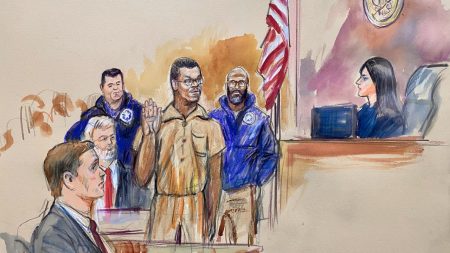Macron’s Rightward Shift: How the French President’s Economic Gamble Failed to Win Back Voters
The Centrist President’s Balancing Act in an Increasingly Polarized France
In the gilded halls of the Élysée Palace, President Emmanuel Macron has spent the past several years orchestrating what he believed would be France’s economic renaissance. The former investment banker who stormed to power in 2017 with his centrist “neither left nor right” movement has increasingly embraced pro-business policies and hardened his stance on immigration and security. This calculated rightward drift was meant to modernize the French economy while simultaneously neutralizing the growing appeal of far-right parties. Yet as France approaches crucial elections, the evidence suggests Macron’s grand strategy has failed to deliver the political dividends he anticipated.
When Macron first took office, he promised nothing less than a revolution – to transform France into a “start-up nation” with a dynamic economy that could compete globally while preserving the country’s cherished social model. His initial reforms included overhauling the rigid labor code, flattening the wealth tax, and creating incentives for entrepreneurship. “France is back,” he declared confidently to global business leaders at Davos in 2018. The president bet that economic growth would eventually translate into popular support, even if his reforms initially faced resistance from unions and left-leaning voters. His strategy represented a fundamental gamble: that by making France more business-friendly, he could generate enough prosperity to win back working-class voters increasingly drawn to Marine Le Pen’s National Rally (formerly National Front) and other right-wing alternatives.
Economic Reforms Amid Social Unrest and a Pandemic
The implementation of Macron’s economic agenda has unfolded against a backdrop of persistent social unrest. The Yellow Vest movement, which erupted in late 2018 over a proposed fuel tax increase, quickly evolved into a broader protest against economic inequality and Macron’s perceived elitism. For months, demonstrators occupied roundabouts and marched through Paris and other cities, forcing the president to make concessions and launch a “Great National Debate” to hear citizens’ grievances. “We probably have not been able to provide a sufficiently quick and strong response to the expectations and needs of part of the population,” Macron acknowledged during this period of national soul-searching. Despite the turmoil, his government pressed ahead with unemployment insurance reforms, changes to the pension system, and corporate tax cuts.
Then came the COVID-19 pandemic, which prompted an extraordinary pause in Macron’s economic orthodoxy. His government deployed a massive “whatever it costs” approach to protect businesses and jobs during lockdowns, temporarily suspending his commitment to fiscal discipline. The pandemic response won him praise from many quarters, with French businesses largely shielded from the worst economic effects of the crisis. As France emerged from the pandemic, Macron doubled down on his rightward shift, appointing more conservative figures to key cabinet positions and adopting tougher rhetoric on immigration and Islamism. His interior minister Gérald Darmanin even accused Le Pen of being “too soft” on Islam during a televised debate – a remarkable statement from a government that had presented itself as a bulwark against extremism. This recalibration reflected Macron’s growing conviction that cultural and security concerns, not just economic policies, were driving voters to the right.
The Failure to Connect with Working-Class Voters
Despite unemployment falling to its lowest level in years and France attracting record foreign investment under Macron’s tenure, the economic benefits have not translated into broader popular support. The president’s approval ratings have consistently hovered below 40 percent, with particularly weak numbers among working-class voters. Political analysts point to several factors explaining this disconnect. “Macron’s reforms have created a perception of unfairness,” explains Sophie Pedder, Paris bureau chief for The Economist and author of a book on Macron’s presidency. “Tax cuts for businesses and the wealthy came alongside reforms that many ordinary French people saw as eroding their social protections.” This sentiment was reinforced by Macron’s occasional communication missteps, such as when he suggested an unemployed gardener should simply “cross the street” to find work in a restaurant or hotel.
The geographic dimension of France’s economic transformation has further complicated Macron’s political challenge. While metropolitan areas like Paris, Lyon, and Bordeaux have thrived under his policies, many smaller cities and rural regions continue to feel left behind. The sense of abandonment in these territories has provided fertile ground for Le Pen’s populist message. Her party has successfully rebranded itself as the defender of “forgotten France,” emphasizing economic protectionism and opposition to globalization. Macron’s attempt to co-opt right-wing voters through tougher positions on immigration and security has inadvertently legitimized Le Pen’s core concerns without convincing her supporters to switch allegiance. “When voters are offered the copy and the original, they tend to choose the original,” notes political scientist Pascal Perrineau, highlighting the fundamental flaw in Macron’s strategy.
International Standing Versus Domestic Disillusionment
On the international stage, Macron has positioned himself as a defender of European sovereignty and multilateralism, particularly during the Trump presidency and in response to Russia’s invasion of Ukraine. His diplomatic activism has earned him respect from global leaders and enhanced France’s standing in European Union decision-making. Yet this international prominence has done little to address the growing disillusionment at home. The contrast between Macron’s confident performances on the world stage and his struggles to connect with ordinary French citizens has only reinforced his image as a “president of the rich” – a label he has never fully shaken off since his first days in office.
The economic data tells a complex story about Macron’s record. France’s GDP growth has generally outperformed the eurozone average during his presidency, excluding the pandemic-affected year of 2020. Corporate investment has increased significantly, and the country has regained industrial jobs after decades of decline. However, these macroeconomic successes have been overshadowed by persistent concerns about purchasing power and the cost of living. “The benefits of economic growth have not been felt evenly across society,” argues economist Philippe Aghion, who initially helped shape Macron’s economic program. “The reforms need more time to deliver their full benefits, but politics operates on a different timeframe.” This mismatch between economic policy cycles and electoral calendars has trapped Macron in a perpetual battle to demonstrate tangible improvements in citizens’ daily lives.
A Legacy in Question as France Faces Political Fragmentation
As Macron approaches the final phase of his presidency (French presidents are limited to two consecutive terms), the question of his legacy looms large. His attempt to occupy the center-right space in French politics appears to have fragmented rather than unified the political landscape. Recent opinion polls show support for traditional center-left and center-right parties collapsing, while both the far-right National Rally and the left-wing France Unbowed movement have consolidated their positions. The president who promised to transcend the old left-right divide has instead presided over its replacement with a more volatile and polarized political environment.
The irony of Macron’s presidency is that his economic reforms may yet bear fruit in the coming years, potentially transforming France into a more dynamic economy better equipped to face global competition. But the political beneficiaries of these changes could well be his opponents rather than his own centrist movement. “Macron’s rightward drift has alienated many of his original supporters without winning over conservative voters in sufficient numbers,” observes political commentator Françoise Fressoz. “He has created a political space that may not be sustainable after he leaves office.” As France approaches crucial electoral tests, the president’s gamble – that economic liberalization combined with cultural conservatism could forge a new governing majority – appears increasingly unlikely to pay off. The lesson of Macron’s presidency may ultimately be that in an age of populism and identity politics, technocratic solutions and ideological shape-shifting are insufficient tools for building lasting political coalitions, even for a leader once hailed as a political wunderkind capable of remaking France’s relationship with globalization and modernity.










